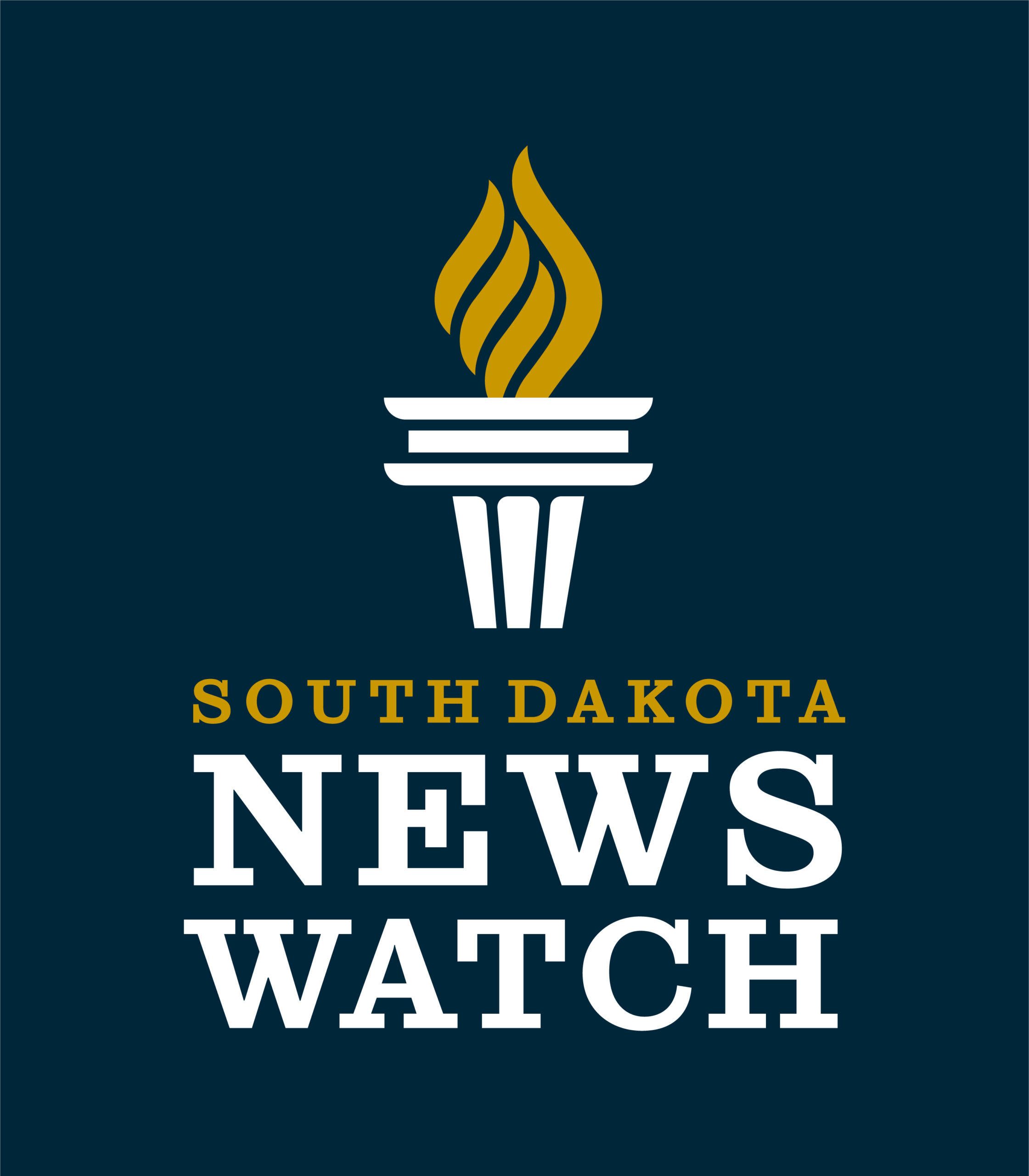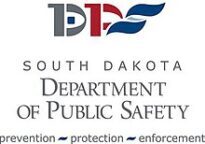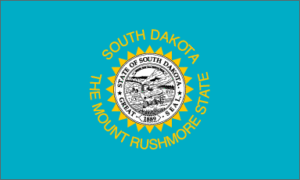A majority of South Dakotans believe the state’s abortion ban is too restrictive and that voters should determine the legality of abortion access rather than the state Legislature, according to a statewide poll sponsored by South Dakota News Watch. The poll of 500 registered voters showed that a majority(57%) of respondents support allowing legal access to abortion medications in the state, including 42% who“strongly support” such access. Nearly two-thirds (65%)said they support having a statewide referendum to determine South Dakota’s laws regarding reproductive rights. More than three-fourths (76%) of those polled support allowing legal abortion in cases of rape and incest, an exception not currently allowed under South Dakota’s laws, among the most restrictive in the nation following the Supreme Court’s decision to overturn Roe vs. Wade in June. The random survey was conducted July 19-22, 2022, by Mason-Dixon Polling & Strategy and contacted voters in all South Dakota counties by landline and cell phone; it was co-sponsored by News Watch and the Chiesman Center for Democracy at the University of South Dakota.
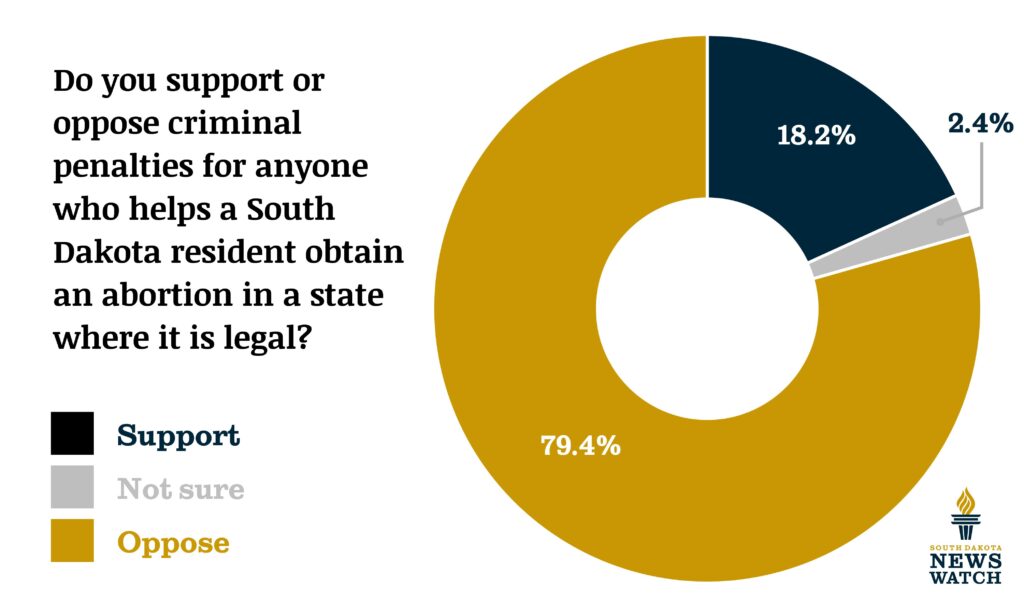
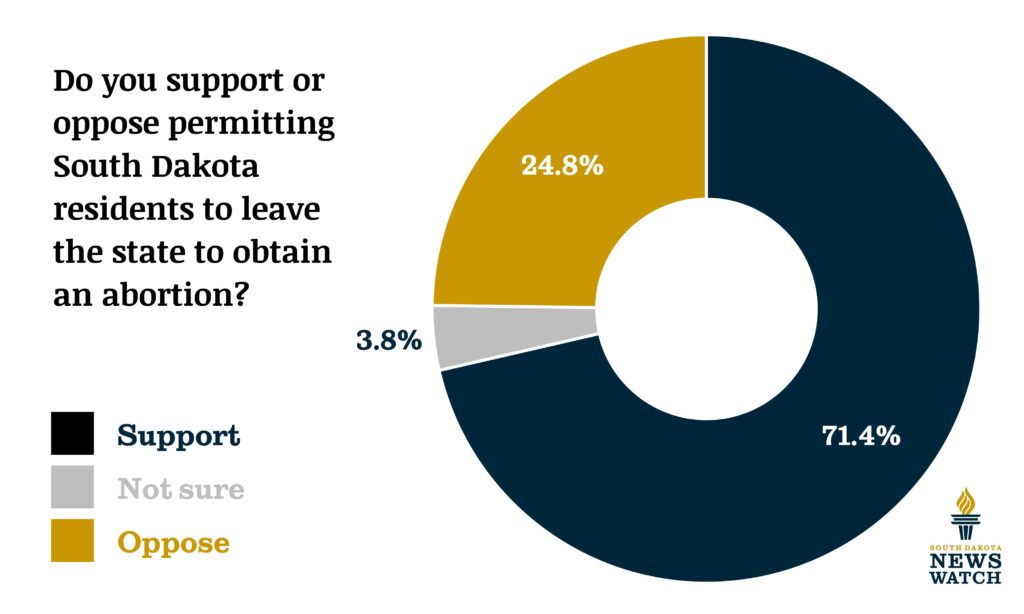
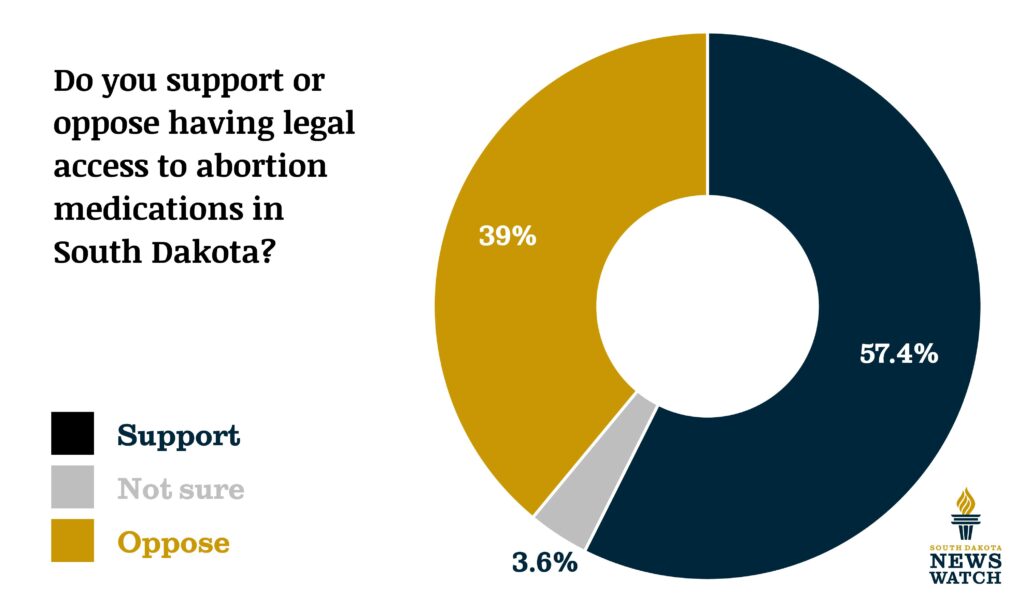
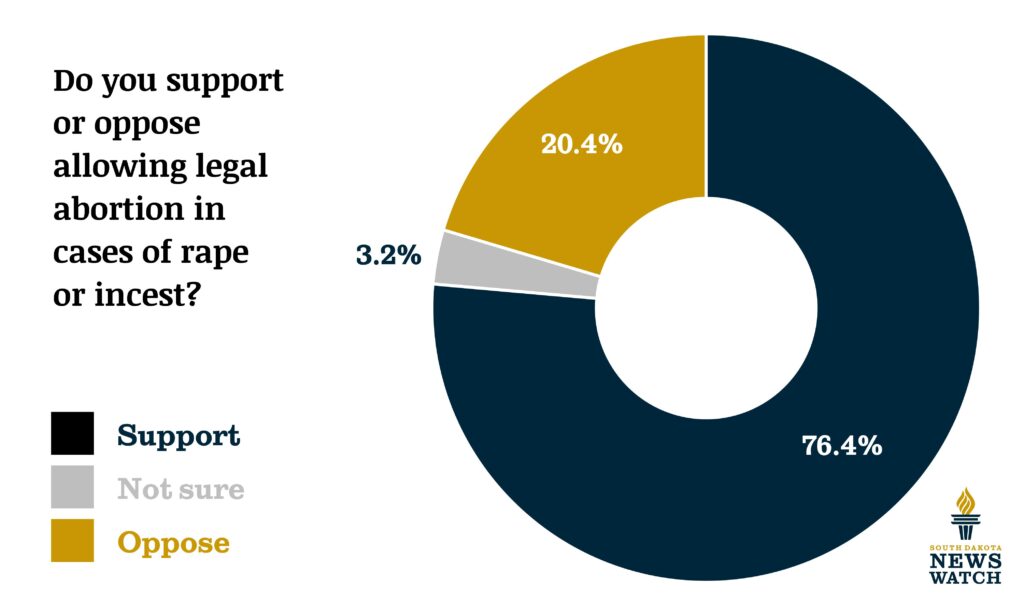
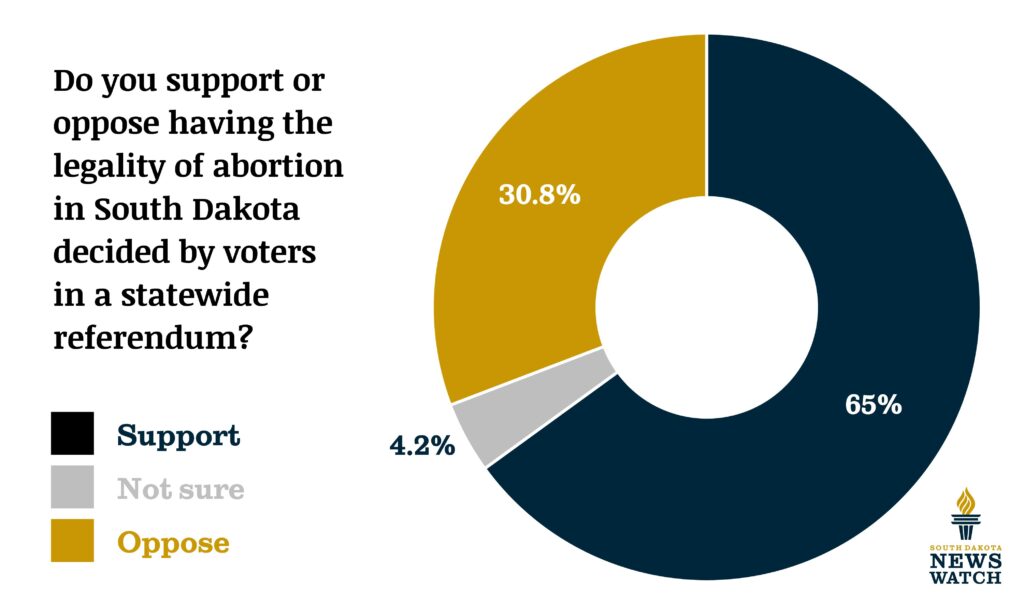
The margin of error is plus or minus 4.5%.The recent landmark U.S. Supreme Court ruling in Dobbs vs. Jackson’s Women’s Health Organization removed the federal constitutional right to an abortion, leaving it up to states to determine legality and access. South Dakota had a “trigger law” from 2005 that took effect, making it a Class6 felony for anyone “who administers to any pregnant female or prescribes or procures for any pregnant female”a means for an abortion, except to save the life of the mother. The crime is punishable by two years in prison, a$4,000 fine, or both.
“That’s the reality we’re living in right now,” said Rick Weiland, whose Dakotans for Health organization plans to put a constitutional amendment on the ballot in 2024 to legalize but regulate access to abortion in South Dakota. “I do think recent events have galvanized a segment of people who haven’t engaged in the past because now they see their rights being taken away.”
The poll also showed that nearly 8 in 10 respondents (79%) oppose criminal penalties for anyone who helps a South Dakota resident obtain an abortion where it is legal, such as in a neighboring state. An overwhelming majority (71%) also support permitting South Dakota residents to leave the state to obtain abortions. Dale Bartscher, executive director of South Dakota Right to Life, declined an interview request from News Watch but was quoted by the Washington Post recently as saying he was “very interested” in preventing South Dakota residents from accessing abortion in other states.
“I’ve heard that bantered about across the state of South Dakota,” Bartscher told the Post. Gov. Kristi Noem had no comment on the poll results when contacted through her office by News Watch. The poll revealed no significant differences in responses based on age, gender or region of the state. Though there were partisan differences, a majority of Democrats,Republicans and Independents support holding a statewide abortion referendum; support legalized abortion in the cases of rape and incest; and support allowing residents to leave the state to legally seek abortions in other states. The majority of respondents in all parties also oppose criminal penalties for those who help individuals obtain an abortion in a state where it is legal.
Julia Hellwege, an associate professor of political science at the University of South Dakota, said that bipartisan agreement is likely attributable to shared distaste for too much government intervention rather than any sort of moral agreement on abortion.
“It’s important to note that (the poll) is differentiating the action of having an abortion versus criminalizing the action and role that the state should play,” said Hellwege. “If the question was simply ‘do you support abortion?’ or ‘would you have one yourself?’’ there would likely be different results. These questions were about the state’s role, and a lot of South Dakotans, as it shows, don’t support the state intervening.”
Weiland, a former Democratic candidate for U.S. House and Senate, said the responses show that abortion restrictions supported by Noem and the Republican-controlled Legislature are not representative of the general electorate.
“There’s been tremendous overreach,” said Weiland. “But the court threw it back to the states, and it’s reassuring that people in South Dakota want it decided by a ballot initiative and not by the governor or state Legislature.”
The constitutional amendment proposed by Dakotans forHealth would prevent the state from regulating abortions during the first trimester. During the second trimester, the state could regulate “the abortion decision and its effectuation only in ways that are reasonably related to the physical health of the pregnant woman.” After the end of the second trimester, abortion could be regulated or prohibited except to preserve “the life or health” of the mother. Dakotans for Health, which can legally start collecting petition signatures on Nov. 5, plans to use both volunteers and paid circulators to get the measure on the ballot for2024.
It wouldn’t be the first time South Dakotans have gone tothe ballot box to determine state abortion laws. In 2006, the Legislature passed a law to ban all abortions except to save the life of a pregnant woman. The measure was signed by then-Gov. Mike Rounds, but opponents gathered enough signatures to refer it to the ballot, where it was defeated with more than 55% percent of the vote. Two years later, voters rejected by a margin of 55% to 45% a ballot initiative that would have banned all abortions in the state except in cases of rape or incest or “to preserve the health or life of the woman.”
In Kansas, a state that former President Donald Trump won with 56% of the vote in 2020, voters on Aug. 2 overwhelmingly rejected a constitutional amendment that would have allowed the Republican-controlled legislature to tighten restrictions or ban abortion outright, with 59%voting against the amendment. Turnout was unusually high for a primary election, with nearly half of registered voters casting a ballot. That came on the heels of a national Pew Research Center poll after the Dobbs decision that showed 62% of respondents saying abortion should be legal in all or most cases.— This article was produced by South Dakota News Watch, a non-profit journalism organization located online at SDNewsWatch.org.


